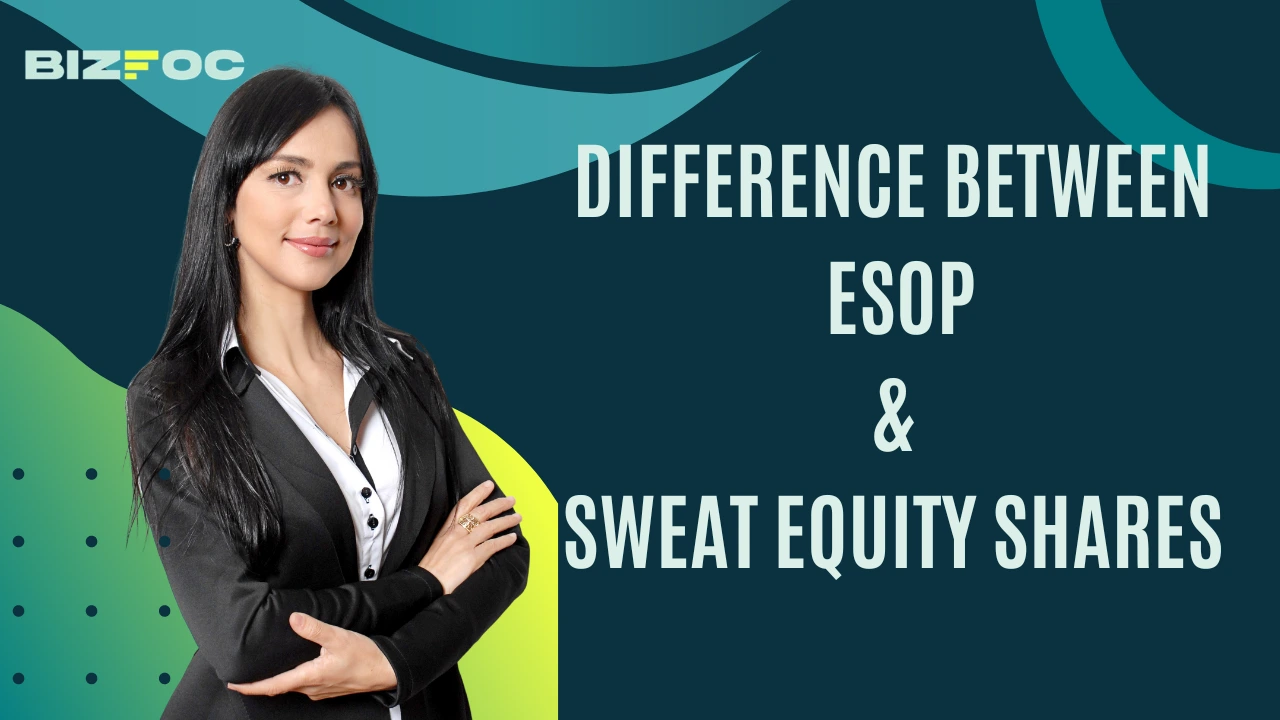Publishing Date: 16 Sep, 2024

Employee retention and keeping the attrition rates low have always been a challenge for start-ups which leads them to become innovative and come up with new initiatives to retain employees in the organization. Employees are often compensated through share-based payment models like ESOPs and sweat equity shares. Thus, rewarding employees with share-based payment forms an attractive and motivating compensatory tool to retain manpower in the organization.
There are structural and functional differences between ESOP & sweat equity. Both aim to reward employees, but they have different purposes and goals. While ESOPs are focused on providing long-term incentives to retain high-performing employees, sweat equity shares are often used to compensate employees for their unique contributions, especially in terms of expertise or technical knowledge.
ESOPs mean granting the shares of the company to employees at a price less than the market value after a fixed period. ESOPs are regulated as per the provisions of the Companies Act, 2013, and Companies (Share Capital and Debenture) Rules, 2014.
As discussed about the difference between ESOP and Sweat Equity, ESOPs are generally offered to high-performing individuals or senior executive members for their long-term commitment in the organization. Issuance of ESOPs involves a grant process wherein the employees have to stay with the organization for a fixed period known as the Vesting Period. After completion of the Vesting Period, the employees have the option to exercise their right to buy the equity shares of the organization. Thus, under ESOP employees are not at the obligation to purchase the shares at lower prices but are rather given an option.
Sweat equity shares are the shares offered to employees for their contributions to the organization providing technical know-how or making any value addition to the company. Rule 8 of Companies (Share Capital and Debenture) Rules, 2014 regulates the procedure of issuing sweat equity shares. Sweat Equity Shares are issued for consideration other than cash or at a discount.
Issue through sweat equity shares does not involve any grant process. Shares can be allotted directly to employees. The Directors are also eligible for allotment of sweat equity shares.
|
Basis of Difference |
ESOP |
Sweat Equity Shares |
|
Motive behind issue |
ESOPs are issued to retain the employees in the company and to incentivize the talented and key-performing employees. |
Sweat Equity Shares are issued to compensate for the efforts of the employees and for significant contributions in intangibles or providing technical know-how or value addition to the company. |
|
Consideration |
ESOPs can be purchased by employees only through cash consideration. |
Sweat Equity can be purchased for cash at a discount or consideration other than cash. |
|
Eligibility |
ESOPs can be issued to:
|
Sweat Equity Shares can be issued to:
|
|
Issue to the promoter group |
Companies except DPIIT-recognized start-ups cannot issue ESOPs to promoters. |
Sweat equity shares can be issued to promoters also. |
|
Grant Process |
Allotment of shares involves a grant process. |
No grant process is followed. Shares are allotted directly to employees. |
|
Pricing guidelines |
There are no pricing guidelines defined under Companies Share Capital and Debenture Rules. Thus, a company can set prices according to its preference. |
Pricing guidelines have to be set by a registered valuer. |
|
Time restriction |
ESOPs can be issued at any point of time during the lifetime of the company. There is no restriction for issuing ESOPs. |
Companies who have been in existence for at least one year can issue Sweat Equity Shares. |
|
Pool restriction |
There is no restriction on the creation of the option pool. |
|
|
Lock-in Period |
There is no lock-in period to keep the shares. Employees can sell the shares anytime even upon allotment. |
Sweat-equity shares have a mandatory lock-in period of 3 years before sale/ exit. |
Start-ups often face non-availability of funds to award their key performing employees. Granting share options serves as a mechanism to motivate and retain the driving force behind the company’s success. This not only helps with money but also makes the employees feel the belongingness to the organization. They feel that they are also part of the team responsible for the growth of the organization.
In short, both ESOPs and Sweat Equity Shares are valuable tools when it comes to attracting and retaining employees in the organization. It is very important to know the difference at the time of ESOP design. However, the selection of the right type of method depends a lot on what the company aims to achieve in the future or how it wants to design its capital structure. There are some similarities between ESOPs and Sweat Equity Shares but at the same time, they both are distinct from each other. It is advisable for a company to seek expert advice before selecting any option. Understanding the difference between ESOP & Sweat Equity will help to select the best choice based on their goals and purpose. Additionally, knowing the difference between sweat equity shares and bonus shares can clarify how these tools impact both employees and shareholders.